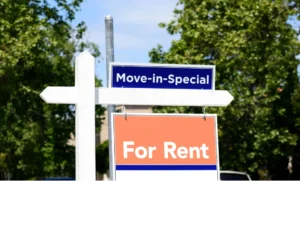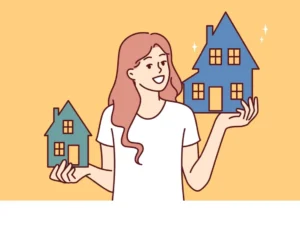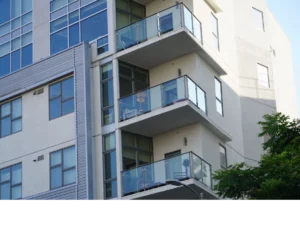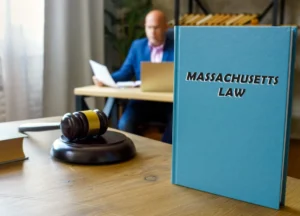A Landlord’s Legal Responsibilities to Their Tenants
We spend a great deal of time in the spaces in which we live, and it has been long understood that housing conditions can have a significant impact on one’s health. Individuals who live in substandard housing are more likely to encounter material or physical hazards, such as pest infestations, mold, leaks and dampness that may trigger negative health effects.
Landlording comes with many responsibilities that include providing your residents with a home that is safe and fit to live in. These conditions include ensuring proper electric, gas and plumbing utilities, as well as installing proper locks and security systems.
A renter must also adhere to certain standards to maintain a habitable environment. If a landlord fails to meet the requirements, the lessee has the option of deducting the costs of repair from their rent or vacating the premises with no constraints. A landlord can also be held liable for certain breaches of security that occur on his property if the unsafe condition or act could have been foreseen or prevented.
Landlord Responsibilities Differ from State to State
 Model federal legislation introduced in 1972, called the Uniform Residential Landlord Tenant Act (URLTA), established a balanced framework for landlord–tenant laws which outlined rights and responsibilities of both parties for maintaining basic minimum habitability standards.
Model federal legislation introduced in 1972, called the Uniform Residential Landlord Tenant Act (URLTA), established a balanced framework for landlord–tenant laws which outlined rights and responsibilities of both parties for maintaining basic minimum habitability standards.
The Act established an “implied warranty of habitability” – an implied standard and requirement that landlords maintain habitable living conditions and perform basic property repairs even if the lease contract does not expressly dictate exact details. The vast majority of states have adopted some form of this model legislation
A landlord’s responsibilities can vary from state to state. For example, in Wisconsin, landlords must disclose uncorrected housing code violations. They must also reveal structural defects, a lack of hot or cold running water, serious plumbing or electrical problems and other hazards.
In Pennsylvania, landlords can’t legally rent property unless it meets basic health and safety requirements. Under Pennsylvania law, if a written or oral rental agreement exists, or if payment is accepted as rent, landlords and tenants have automatic rights and responsibilities under the Landlord and Tenant Act, such as the right to a livable dwelling and timely rent payments.
In Washington state, a landlord has 24 hours to restore heat, hot or cold water, electricity or fix a condition that poses an immediate hazard to life. They have 72 hours to fix a refrigerator, range and oven or a major plumbing fixture that has been supplied with the apartment and 10 days to make repairs in all other cases.
On the other hand, a tenant in Oklahoma can be evicted for failure to maintain water and electric service or if they engage in material noncompliance of the lease and it affects the health or safety of others. If harm to the property is imminent, then the landlord may terminate immediately and initiate eviction proceedings.
It must be noted that Arkansas is the only U.S. state that does not have a landlord’s implied warranty of habitability. This means that tenants have a requirement for maintaining their rental properties at certain habitability standards, but landlords are not legally required to contribute to those minimum health and safety standards, including the maintenance of plumbing, heating, or cooling systems and pest or rodent control.
Paying Too Much For Insurance?
Get a FREE quote to insure your rental properties for less.
Renting for Profit Brings Certain Responsibilities
Court decisions have held that the landlord offers premises for rent for a profit and in providing that service, they must provide living accommodations that meet certain habitability conditions. If he does not, the tenant may make those repairs or terminate the leasehold. If you have allowed unsafe conditions to exist on premises within your control and foreseeable harm results, you may be liable. If the tenant is responsible for the condition in specified ways, the tenant is responsible.
In terms of residential leases, in order for a landlord to be allowed to place rental units on the market, the landlord must first ensure that all of the following conditions which make the building fit for human occupancy are met.
We are using California’s Civil Code Secs. 1929, 1941 as an example, but similar stipulations are found throughout the country (except Arkansas).
-
- Effective waterproofing and weather protection of roof and exterior walls
- Well-maintained plumbing and gas facilities compliant with law in effect at the time of installation
- Water supply compliant with applicable law that is capable of producing hot and cold running water
- Well-maintained heating facilities compliant with applicable law at the time of installation
- Well-maintained electrical lighting compliant with applicable law at the time of installation
- Building, grounds and equipment kept sanitary and free from debris and vermin at the time of rent or lease
- Sufficient number of receptacles for garbage
- Well-maintained floors, stairways, and railings
- Locks conforming to code [CA Civil Code Sec. 1941.3]
The landlord is not only responsible for seeing to it that these conditions are met at the time of lease. They are also obligated to oversee all necessary repairs unless the tenant violates any of their obligations to keep their area clean and sanitary, to dispose of all garbage from their unit in a clean and sanitary manner and to properly use all electrical, gas and plumbing fixtures. [CA Civil Code Sec. 1941.2]
At the start of a tenancy, the landlord must provide the tenant with the name and address of a person who can be readily contacted regarding maintenance problems. The landlord is responsible for making any repairs that are necessary to comply with local housing codes and to keep the premises safe. If the landlord refuses to repair major building defects, the renter may report the defect to their local building or health inspector. The landlord may not retaliate by evicting the tenant.
Conclusion
In reality, most landlords want safe premises in good condition and most tenants do take care of their homes. Nevertheless, being a landlord is an active type of business that requires reasonable upgrades, repairs and inspections.
For real estate investors, being well-informed about their rights and responsibilities can help protect their properties and maintain positive tenant relationships. Landlords and tenants who do their due diligence by staying on top of ever-changing laws, rights and regulations can easily navigate the rental landscape and avoid potential legal disputes.













 Accessibility
Accessibility